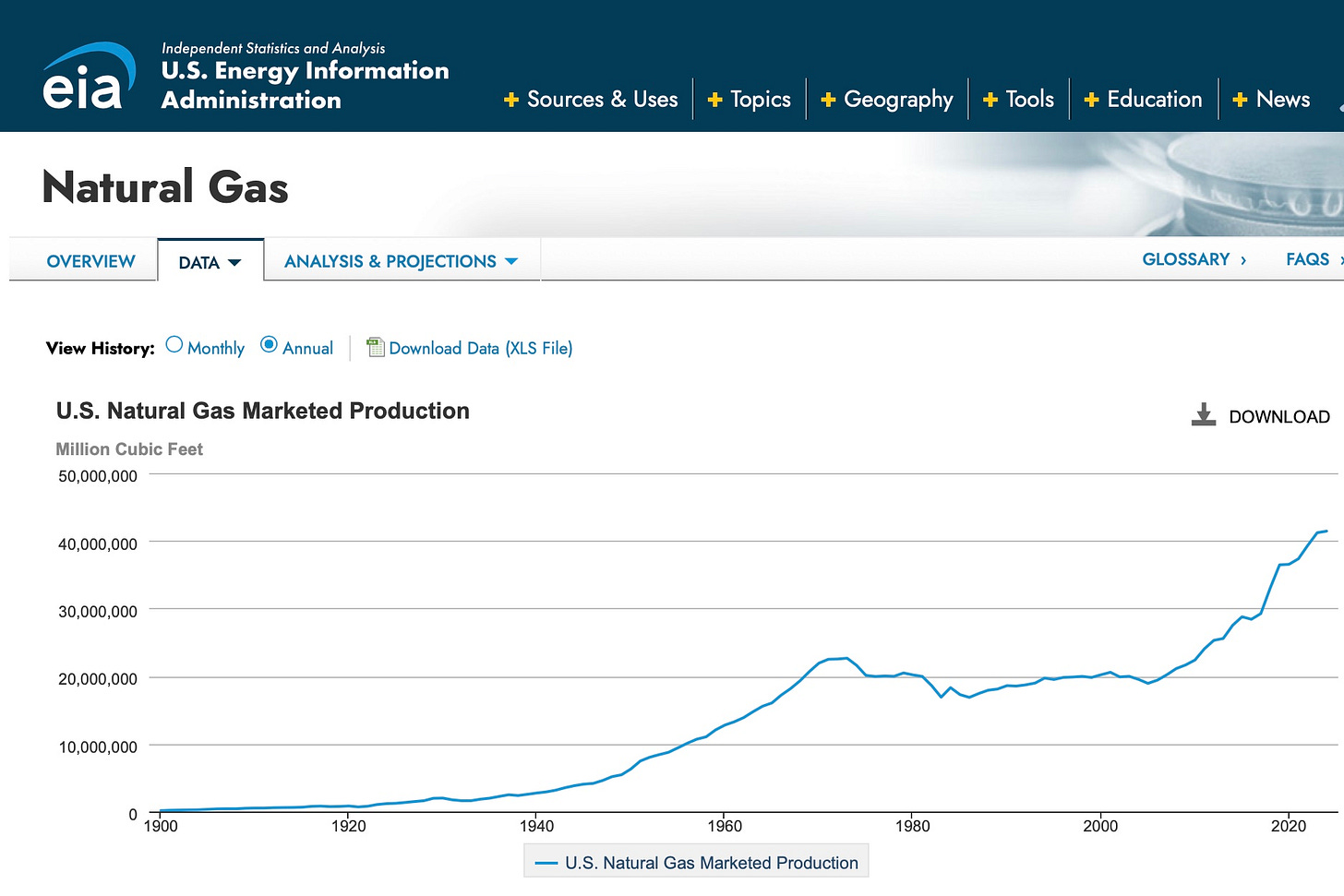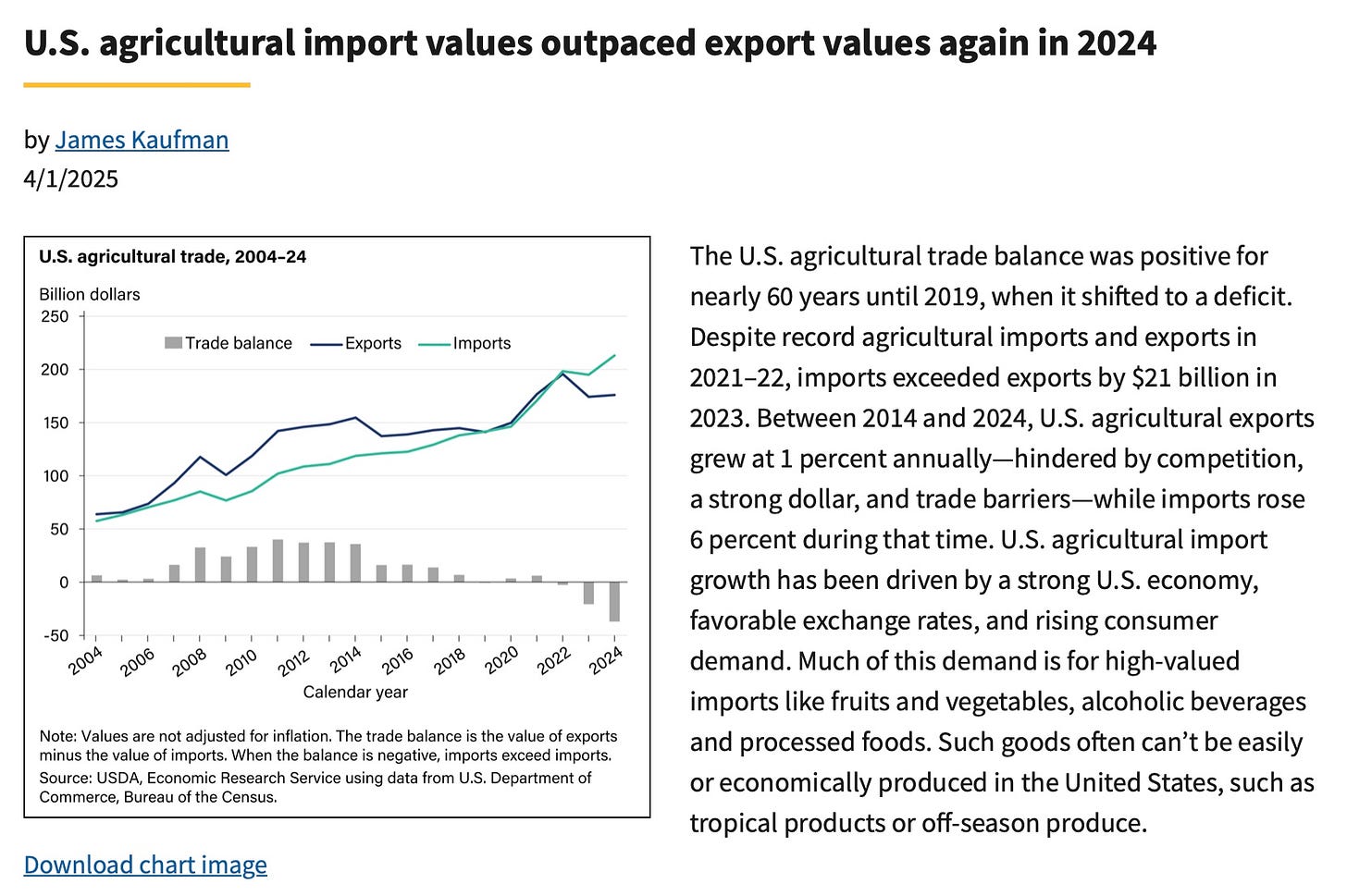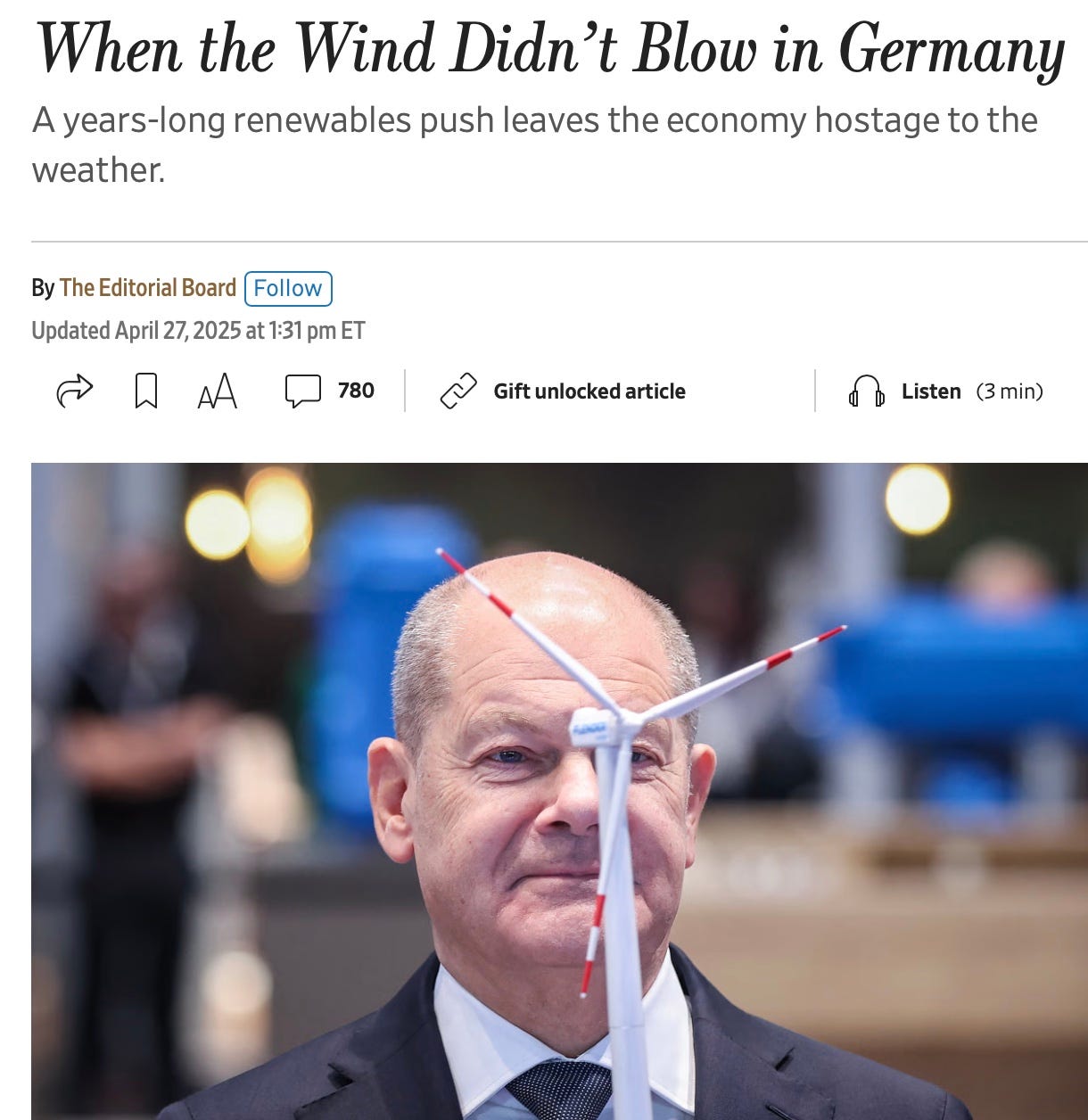The globalists want to reduce the amounts of energy (and food?) that can be produced
It's one way to reduce the population, while falling incomes, vaccines that act as fertility killers, and poisons in our food and water contribute as well
Food requires fertilizer. Producing the nitrogen in most commercial fertilizers requires natural gas to power the production of ammonia in the US. Despite all the talk about reducing fossil fuel production, and despite all those solar farms that have sprouted up everywhere, the US continues to increase extraction of natural gas. Luckily, the powers that be have not tried to impose energy scarcity on the US [yet], the way that Germans and Brits have had it imposed on them. However, I do wonder how many water sources have been despoiled by fracking.Although the US produces 10% of the world’s nitrogen fertilizer, we have been a net food importer since 2022. We need to turn this around—we need control of food quality, which has been absent in much of our imported food. I’m referring, for example, to the use of banned pesticides in food imports and fake “organic” imports, in particular. Why has this happened?
Luckily, the powers that be have not tried to impose energy scarcity on the US [yet], the way that Germans and Brits have had it imposed on them. However, I do wonder how many water sources have been despoiled by fracking.Although the US produces 10% of the world’s nitrogen fertilizer, we have been a net food importer since 2022. We need to turn this around—we need control of food quality, which has been absent in much of our imported food. I’m referring, for example, to the use of banned pesticides in food imports and fake “organic” imports, in particular. Why has this happened? It’s been a miserable 2025 for wind and solar in Germany.https://www.wsj.com/opinion/germany-energy-renewables-wind-solar-friedrich-merz-264091b7
It’s been a miserable 2025 for wind and solar in Germany.https://www.wsj.com/opinion/germany-energy-renewables-wind-solar-friedrich-merz-264091b7 Germany has invested so many hundreds of billions of euros in its green energy transition over the years that no one can tally the precise amount. Yet the share of wind and solar power in the country’s energy mix in the first quarter of this year managed to fall—by a lot. There’s a lesson for the U.S. here.Renewable sources made up some 47% of electricity consumption in Europe’s largest economy in the first three months of 2025, the energy trade association BDEW reported Thursday. That’s down from 56% in the first three months of 2024. The drop comes despite Germany’s continuing build-out of renewable generation. The country has added 872 wind turbines with a capacity of 4.3 gigawatts since April 2024, yet wind-power output fell 16%. Ouch.You can guess what went wrong. February and March were unusually wind-free, onshore and offshore. A lack of rain meant hydropower underperformed…Germany is further down the road of renewable power than many other large economies. Its energy mess is enough to make everyone else realize it’s not an example to follow.
Germany has invested so many hundreds of billions of euros in its green energy transition over the years that no one can tally the precise amount. Yet the share of wind and solar power in the country’s energy mix in the first quarter of this year managed to fall—by a lot. There’s a lesson for the U.S. here.Renewable sources made up some 47% of electricity consumption in Europe’s largest economy in the first three months of 2025, the energy trade association BDEW reported Thursday. That’s down from 56% in the first three months of 2024. The drop comes despite Germany’s continuing build-out of renewable generation. The country has added 872 wind turbines with a capacity of 4.3 gigawatts since April 2024, yet wind-power output fell 16%. Ouch.You can guess what went wrong. February and March were unusually wind-free, onshore and offshore. A lack of rain meant hydropower underperformed…Germany is further down the road of renewable power than many other large economies. Its energy mess is enough to make everyone else realize it’s not an example to follow.